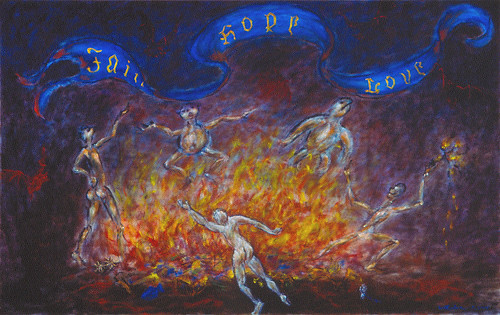Following his successive stunts as mayor of Dalian, an important harbor city in Manchurian China, governor of Liaoning Province (also in Manchuria), and minister of commerce, he was sent by the higher-ups to the more remote southwestern Chongqing, in semi-exile. In order to make a comeback and be promoted into the highest ruling body - nine-member Standing Committee of Politburo, he staged a highly controversial and visible "Chong Hong Da Hei" campaign, literally meaning Singing Red Hit Black. Red was revolutionary red songs, many of them were popular in the crazy Cultural Revolution time in 1960s-1970s; while Black were crime bosses alleged had been running Chongqing when he arrived.
Incredibly, within two years' time, "since June 2009, some 2,000 people were detained in his sweeping campaign against gangsters in the city" [wikipedia]. 57 were condemned to die and 17 had been carried out - most of them were politicians with connections to rivals, rich businessmen with huge properties to lose.
New York Times stated that
Da hei, begun in June 2009, was Mr. Bo’s crown jewel, a strike against the corruption and law-flouting in China’s governing and business classes that ordinary Chinese deeply resent. It helped win Mr. Bo a national reputation as “a guy who gets things done,” Mr. Li of the Brookings Institution said.
In 10 months, 4,781 people were arrested, including business executives, police officers, judges, legislators and others accused of running or protecting criminal syndicates. In one celebrated case, Chongqing’s top justice official, found to have buried $3 million beneath a fish pond, was shot in July 2010, one of 13 da hei defendants who were executed.
Some sources even claimed that eventually, as high as 50,000 people had been investigated, detained, and/or arrested.
Cynically, his Singing Red campaign had grown so big that even 6 of 9 current member of the Standing Committee of Politburo made pilgrimage to Chongqing and he had organized countless rounds of singing contests and concerts at all levels, and spent enormous amount of money.
These were not hard to understand - a politician believed it was a good way to self-promote, using tax-payers money or money confiscated from "mafias" was as natural as sunrise and sunset. What baffled me was the how easily people had been brought into this mass singing mania.
My report in May 2011 can give you For a glimpse of what went on then - at that time, Bo had his eyes on the position of Prime Minister:
Coinciding with the disappearance of internationally renown artist and social critics Ai Weiwei, and the "Singing Red" movement in Chonqing, championed by Prime Minister aspirant, Bo Xilai, China is making great leap backward, back to 1960s and 1970s.I cannot help by wondering what those participants would be thinking and feeling, following the downfall of Bo, or not, of their own performances during his brutal and deceptively benign rule.
Chongqing: Sing the Classic Red Songs, Summon the Spirit of Development
Chongqing: ten-thousand people renewed their vows to the [Communist] Party and Sung "red" songs in unison
I am sure that there were willing participants, and some were forced, and others were drifting. A situation quite like the endless political campaigns had played out in China before, including the Great Cultural Revolution, during the time Bo Xilai's own mother had been tortured to death.
I was too young to have experienced the heightened mass hysteria. According to my mother, my late maternal grandfather, not endowed with dancing talent, was forced to practice a certain "Loyal Character Dance", a pean to Chairman Mao in the form of stylized movements. Mom told me that Grandpa used to practice for hours everyday, fearing any imperfection of posture of imprecise of rhythm would be interpreted as counterrevolutionary.
When I grew up, largely in 1970s through 1980s, the zeal had receded considerably, despite the fact that when we went to cinemas, we had to stand up before and after the show, listening to the revolutionary songs - "East Is Red" (hint: Mao as the benevolent sun) and "Internationale". I cannot remember which one was played before and which after the show. Always those two though.
Later, even that practice stopped, either gradually or suddenly, I cannot recall.
I had thought that I would never see those craze again in China, when Chinese people had experienced so much and had become so cynical.
Yet, I was wrong.
With the amazing economy growth there, the ever-increase nationalism became quite alarming, especially being fanned by cynical political leader, who happened to be charismatic.
Poor Chinese people. Year after year, they polish their pipes and joints, sing and dance endlessly. When they still believed, their zeal was misplaced and tragic; when they no longer believed but could not or would not stop singing and dancing, that became farcical.
The farce would not stop, unless they rid of their inner tarantula.






No comments:
Post a Comment